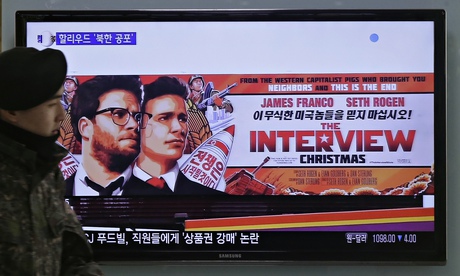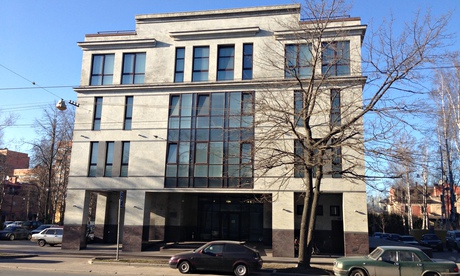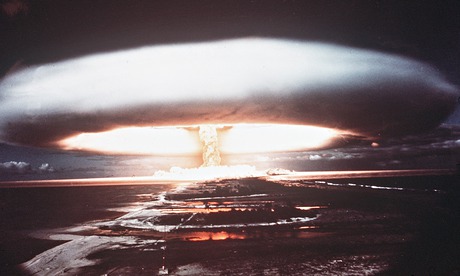Has the age of cyber warfare dawned? Barack Obama refrained from calling the hacking of Sony an act of war by North Korea. He prefers to describe it as “cyber vandalism”, and has warned of a “proportionate” response.
As experts ponder what form such retaliation might take – and we still don’t know what caused North Korea’s internet outage this week – there were interesting tweets from Toomas Hendrik Ilves, president of one of the smallest states in the world, Estonia. “Destructive cyber-attacks, as we have seen in the Sony case, threaten all our liberties worldwide if intimidation is allowed to stand. A free and open internet is the life blood of 21st century democracy, worldwide. Its defence needs all like-minded nations’ cooperation.”
Ilves knows a bit about cyber vandalism because Estonia, which prides itself as being among the most wired states in Europe, was in 2007 subjected to one of the most spectacular cyber-attacks yet. For two months, hackers unleashed a wave of digital assaults that crippled government and corporate sites. Estonia traced the attacks to groups in Russia, and suggested that they had been activated by the Kremlin. Russian officials denied it. Estonia went on to host a special Nato centre for cyber defence and research. Later, a group of international experts produced a document called the Tallinn manual on international law applicable to cyberwarfare. This text attempts to look at how cyber operations can cross certain threshholds in the realm of international security, and how states can respond. A lot of the discussion revolves around whether a cyber assault
falls into the category of an armed attack. There are no clear-cut answers. It seems this debate will continue to unfold on a case-by-case basis.
The targeting of Estonia was not to do with a movie that might have displeased Russia, but with a decision made by Estonian officials to dislodge a Soviet second world war monument in Tallinn. This sparked rioting among Estonia’s ethnic Russian minority and a furore among Russian-based nationalist groups such as the youth organisation Nashi, which later claimed responsibility for the cyber campaign – although proof of this was never produced.
The parallels between the Estonian episode and the Sony hacking are striking. Just as North Korea now stands accused of trying to censor a movie in the US through cyberthreats, Russia came under criticism for trying to blackmail a neighbouring state into preserving a remnant of Soviet historiography on its territory. It is no surprise the Estonian president feels strongly about the attack on Sony, and its wider meaning in terms of freedom of expression and state sovereignty.
The attack on Estonia was in a way more foreboding than the strike on Sony, because it temporarily paralysed the very functioning of some state institutions. In Sony’s case, however, there was obviously more at stake than just a private company’s wellbeing. Hollywood, a whole industry that many in the world can associate with American soft power or influence, found itself under threat.
Cyber vandals play on the notion of plausible deniability. Their aim is to inflict damage or force their adversary to retreat without openly claiming responsibility for any attack. This strategy basically follows what the Chinese warrior-philosopher Sun Tzu described as the supreme art of war: “to subdue the enemy without fighting”. The withdrawal of the movie was a clear victory for the hackers and their intimidation.
Just as North Korea denies any responsibility over Sony, Russia has spent most of the past year denying any direct role in the armed insurgencies in eastern Ukraine. Moscow has acted through proxies and stealth military action, just as North Korea relied on an army of hackers that was difficult to trace. This is a new era of hybrid warfare and deniable attacks. So perhaps it wasn’t a big surprise to see, in the middle of the Sony hacking scandal, Vladimir Putin suddenly inviting the North Korea leader, Kim Jong-un, to visit Russia.
If they meet, they will surely have an interesting conversation, comparing notes on how their strategy unfolded and how the outside world responded. They might even mention Sun Tzu.











